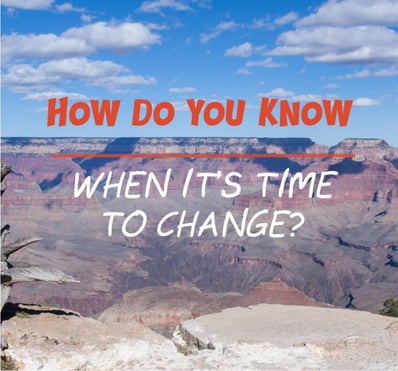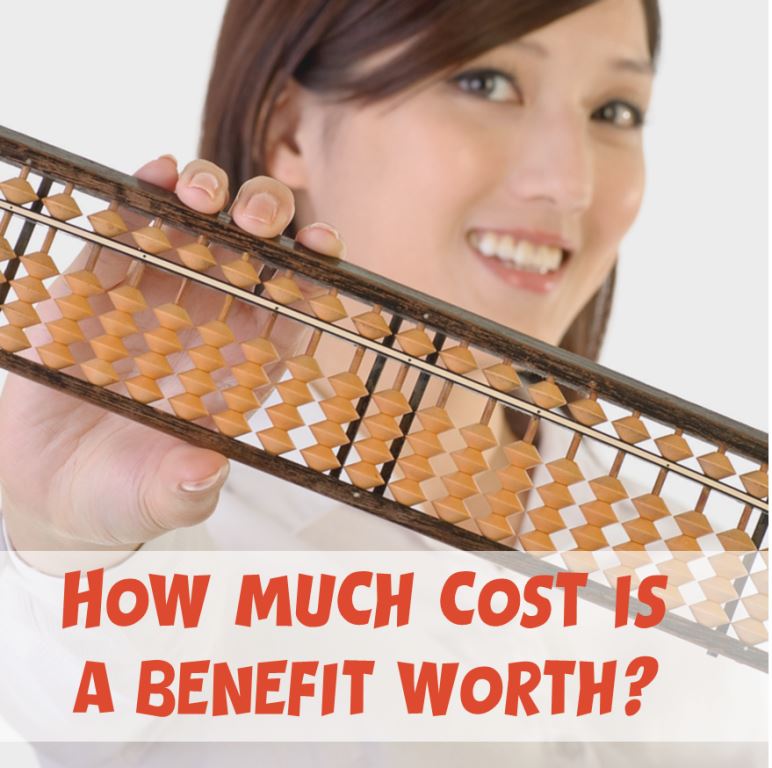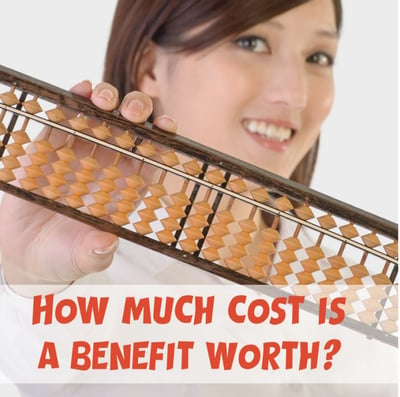How much cost is a benefit worth? The answer is: it depends.
For example, one would think that saving a life is worth any cost. But what if the cost is putting a patient on life support when they have DNR orders in place? Sometimes the answer is not the most obvious one.
To be less esoteric, cost-benefit decisions occur daily in business. And the answers ─ even to the same question ─ aren’t constants. I recently had a discussion with the Great Harvest leadership team about how my valuation of something had recently shifted. What I used to deem very worthy of its cost no longer seems to be worth it.
In fact, the actual cost is still the same, but now that we are in a different time, with different needs, my perspective on the cost-benefit has shifted. From where I stand now it doesn’t look so attractive. Which begs the question: how do you know when the benefits no longer justify the costs? The simple answer is one where you can just crunch numbers or review behavior. For example, I do or pay X, and Y results. Substitute for X, and decide which Y outcome is better . . . But cost-benefit is rarely that simple. Most of the time, the cost or the benefit isn’t black or white. And that is how the answer becomes, “it depends.” Plus, as I pointed out above, things change over time.
The simple answer is one where you can just crunch numbers or review behavior. For example, I do or pay X, and Y results. Substitute for X, and decide which Y outcome is better . . . But cost-benefit is rarely that simple. Most of the time, the cost or the benefit isn’t black or white. And that is how the answer becomes, “it depends.” Plus, as I pointed out above, things change over time.
I’ve written before about the need to change, in life and in business. When things are in constant motion, doing the same thing repeatedly can’t continue to have the same results. Adaptation is survival.
At different times, things become more or less important . . . and worth more or less money. That is what happened in my example above. Something that was critical to us over the last two years just isn’t so important anymore. It was worth a large cost at one point but isn’t today.
Does that mean the previous decision was wrong? No. It just means things are different today. Does that mean that today’s decision to do the exact opposite is wrong? Equally no. Opposite decisions can be equally correct at different points in time. The key to a strong cost-benefit analysis is to understand where you are on the time continuum and make the right decision based on that position.
Speaking of cost-benefit shifts...has your job's net value been dropping?
If you've been considering a change, Learn About franchise Ownership with Great Harvest:
Read more about change on our blog:
- Why Inertia is a Silent Threat to Our Health and to the Bread Business
- Food Business Evolution: Is There More to Life Than a Turkey Sandwich?
- Open a Bakery? That's Too Radical of a Change for Me
- Should a Bakery Be a Cafe? Maintaining a Bread-Centric Identity
- Change is Natural and Healthy in the Bread Business






